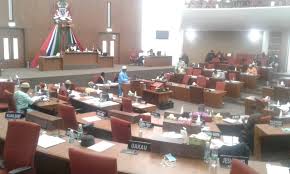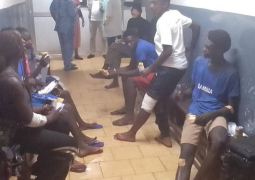
The National Assembly’s Library and Research Department has sounded the alarm over what it calls a dangerous legal vacuum that allows hospitals to delay or refuse emergency medical treatment while waiting for police clearance.
The report titled: ‘Legislative Options for Emergency Medical Treatment Without Police Report’, compares The Gambia’s legal framework to those of other African countries like Kenya, Nigeria, and Uganda all of which have enacted laws that guarantee immediate care for emergency patients.
While The Gambia’s 1997 Constitution recognizes the right to life (Section 18) and the right to health (Section 216), the report notes that “there is no legislative provision that explicitly guarantees the right to emergency medical treatment.” This means that although both the Ministry of Health and the Police have issued directives urging hospitals to treat patients before paperwork, these are mere administrative orders, not binding laws.
“These directives lack the force of law,” the report warns, “and therefore cannot hold health facilities or professionals accountable for delay or denial of treatment.”
In Kenya, for example, Article 43(2) of the Constitution explicitly states that no person shall be denied emergency medical treatment. The Kenyan Health Act (2017) enforces this principle, obliging both public and private hospitals to provide care regardless of payment or police documentation.
Nigeria goes even further. Under its National Health Act (2014) and the Compulsory Treatment and Care for Victims of Gunshot Act (2017), hospitals are legally bound to treat all emergency patients immediately — and those who fail to comply face prosecution, fines of up to ₦100,000, or even jail time.
Uganda too, under its Road Traffic Amendment (2023), mandates that accident victims must receive immediate care without delay for police reports or payment.
The report argues that such examples offer vital lessons for The Gambia. By adopting a “treat first, report later” approach through legislation, the country could bridge the gap between constitutional promises and life-saving action.
“A patient’s right to life should not depend on paperwork,” the report insists. “When lives hang in the balance, doctors should act first and report later.”
Legal analysts say the proposed law would not only protect patients but also shield doctors from legal uncertainty ensuring they can act quickly without fear of breaching police or administrative procedures.
The document concludes with a clear recommendation: The Gambia must enact a binding law that obliges all hospitals, public or private, to treat emergency cases without delay and imposes penalties for failure to do so.





